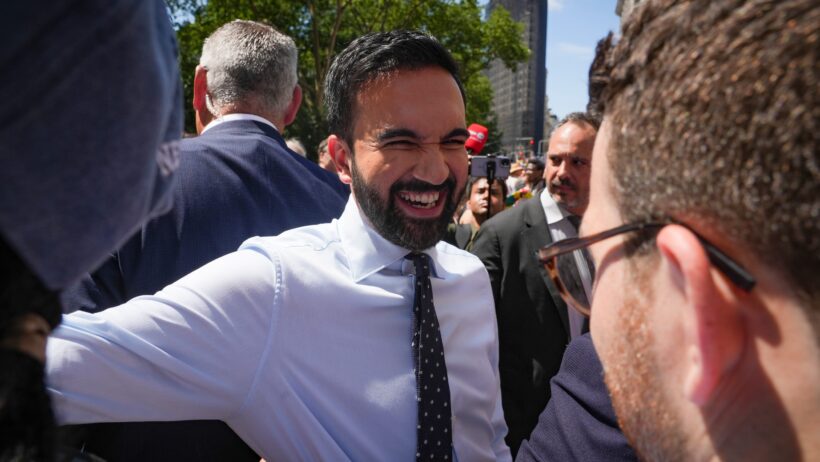Arizona Gaming Director Criticizes Sports Event Contracts, CFTC Regulatory Role
By Robert Linnehan in Sports Betting News
Published:

- The Arizona Department of Gaming criticized the Commodity Futures Trading Commission and its regulatory role in allowing sports event contracts
- Jackie Johnson, director of the department, submitted comments to the commission against the sports event contract market
- Arizona is one of seven states to issue a cease-and-desist notice to a sports event contract broker
The director of Arizona’s Department of Gaming criticized the Commodity Futures Trading Commission for its inability in regulating its own rules against the sports event contract market and for putting private business concerns over the public’s interest.
Jackie Johnson, director of the Arizona Department of Gaming, recently submitted comments to the Commodity Futures Trading Commission (CFCT) criticizing the proliferation of the sports event contract markets in the state.
“As you are aware, the DCMs (Designated Contract Markets) are enabling the purchase of “contracts” in Arizona on future events including sports. Whether a contract will pay its buyer depends on whether that person correctly predicts the result of the event and buys a contract for the correct outcome. This conduct amounts to illegal gambling in Arizona, the promotion of which is a felony,” she reported.
Arizona Did Not Legalize Sports Event Contracts
Johnson noted there is no “meaningful difference” between buying a sport event contract from Robinhood, Kalshi, or Crypto.com and placing a bet with any other sportsbook in the state. When Arizona legislators passed the 2020 Gaming Act, it do so after extensive consultation with the public and gaming experts, including the Department of Gaming and Tribal nations that operate casinos in the state.
When legalizing sports betting, the act never intended to allow sports event contracts to state residents, she claims.
“The Act is thus a reflection of the fact that the people of the state wanted only certain entities to operate event wagering, to eliminate illegal sports betting in the state, to carefully limit and regulate event wagering in a manner reflecting Arizona values, and to use it to raise money for all Arizonans,” Johnson wrote.
The DCMs that offer sports event contracts are avoiding state requirements and regulations by claiming they are financial derivatives that only come under CFTC oversight. This allows them to circumvent required regulatory costs and costs associated with state law compliance, as well as all licensing fees and taxes associated with sports betting, Johnson wrote.
Johnson also levied criticism towards the CFTC, claiming it has failed to enforce its own rules that should bar sports event contracts and for prioritizing the private business concerns “of a handful of DCMs.”
“The CFTC’s inaction in enforcing its own rules, specifically, 17 CFR 40.11(a)(1), has prioritized the private business concerns of a handful of DCMs over the public’s interests. The State respectfully requests that the CFTC reconsider its actions and inaction in light of the State’s concerns and conclude that the DCMs’ offering of event contracts is gambling, is contrary to the public interest, and should be prohibited,” Johnson reported.
The CFTC rule she references, 17 CFR 40.11(a)(1), states the following:
“A registered entity shall not list for trading or accept for clearing on or through the registered entity any of the following: (1) An agreement, contract, transaction, or swap based upon an excluded commodity, as defined in Section 1a(19)(iv) of the Act, that involves, relates to, or references terrorism, assassination, war, gaming, or an activity that is unlawful under any State or Federal law.”
Arizona Cease-and-Desist to Kalshi
The submitted comments came less than two weeks after the Arizona Department of Gaming issued cease-and-desist notices to Kalshi, Robinhood, and Crypto.com, ordering the brokers to cease offering sports event contracts to Arizonans.
InGame was the first to report the cease-and-desist orders.
Arizona is one of seven states – Illinois, Maryland, Montana, Nevada, New Jersey, and Ohio – to order the brokers to cease offering sports event contracts to its residents.
It remains to be seen if any of the companies take legal action against Arizona. Both Kalshi and Robinhood have levied lawsuits against Maryland, Nevada, and New Jersey gaming departments for attempting to restrict their sports event contracts. The lawsuits are based on the notion that state have no regulatory power over the markets, that only the CFTC can federally regulate the markets.

Regulatory Writer and Editor
Robert Linnehan covers all regulatory developments in online gambling and sports betting. He specializes in U.S. sports betting news along with casino regulation news as one of the most trusted sources in the country.



